In 2021, Doctors Without Borders/Médecins Sans Frontières (MSF) continued its lifesaving work in more than 70 countries around the globe. Our teams responded to the needs of displaced people who fled their homes in search of safety, and in places where violent conflicts depleted local health care systems. We treated people affected by natural disasters and the climate crisis, continued our ground-breaking medical research, and worked to prevent and treat infectious diseases like drug-resistant tuberculosis, malaria, measles, HIV/AIDS, and cholera. The COVID-19 pandemic continued to spread around the world, as did our ongoing efforts to address it.
In these images, staff and professional photographers from around the world have captured just some of the stories of patients and staff we work with, bearing witness to an essential humanitarian need: access to medical care.
Conflict and Displacement
This year, MSF carried out search and rescue operations in the Mediterranean Sea, one of the deadliest migration routes. On the evening of October 23, a rubber boat with 95 people on board was about to be intercepted by the Libyan Coast Guard and taken back to the country, where many face inhumane conditions and even torture. MSF teams arrived on time to carry out the rescue safely.
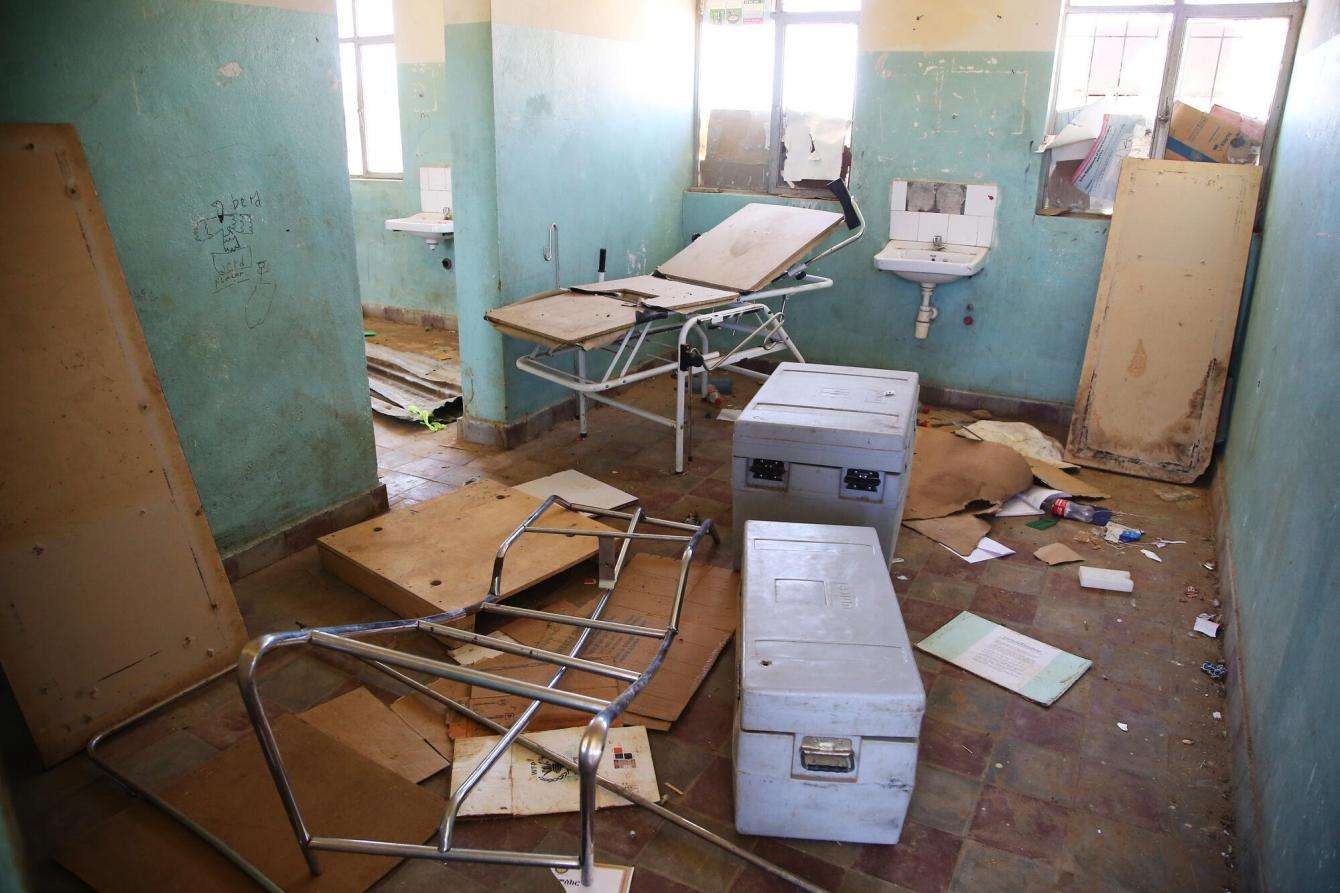
A damaged room in the health post at Adiftaw, a village in Ethiopia’s conflict-hit Tigray region. When an MSF mobile team reached the area, they found the post had been looted and partially destroyed. Medical files, broken equipment, and torn medicine packets were chaotically dispersed across the floors of every room. None of the beds had mattresses and no medical staff were present.

An MSF team of physiotherapists makes a compressive face mask for a burn victim in the organization's burn and trauma clinic in Gaza city. In May, Israeli air strikes in the area damaged the clinic where MSF treats more than 1,000 children per year with burn and trauma injuries, leaving a sterilization room unusable and a waiting area damaged.

This year, MSF asked Venezuelan migrants and refugees living in Brazil about the objects they carry with them on their perilous journeys to safety. María Helena and Domingo, pictured above, live in the town of Pacaraima in northern Brazil. María has high blood pressure and has had two strokes in the past. She and Domingo receive medical and psychological care from MSF. According to María, “Domingo is a lawyer and a pastor and I’m a seamstress. We carry with us the knowledge of those professions and our love for our children."
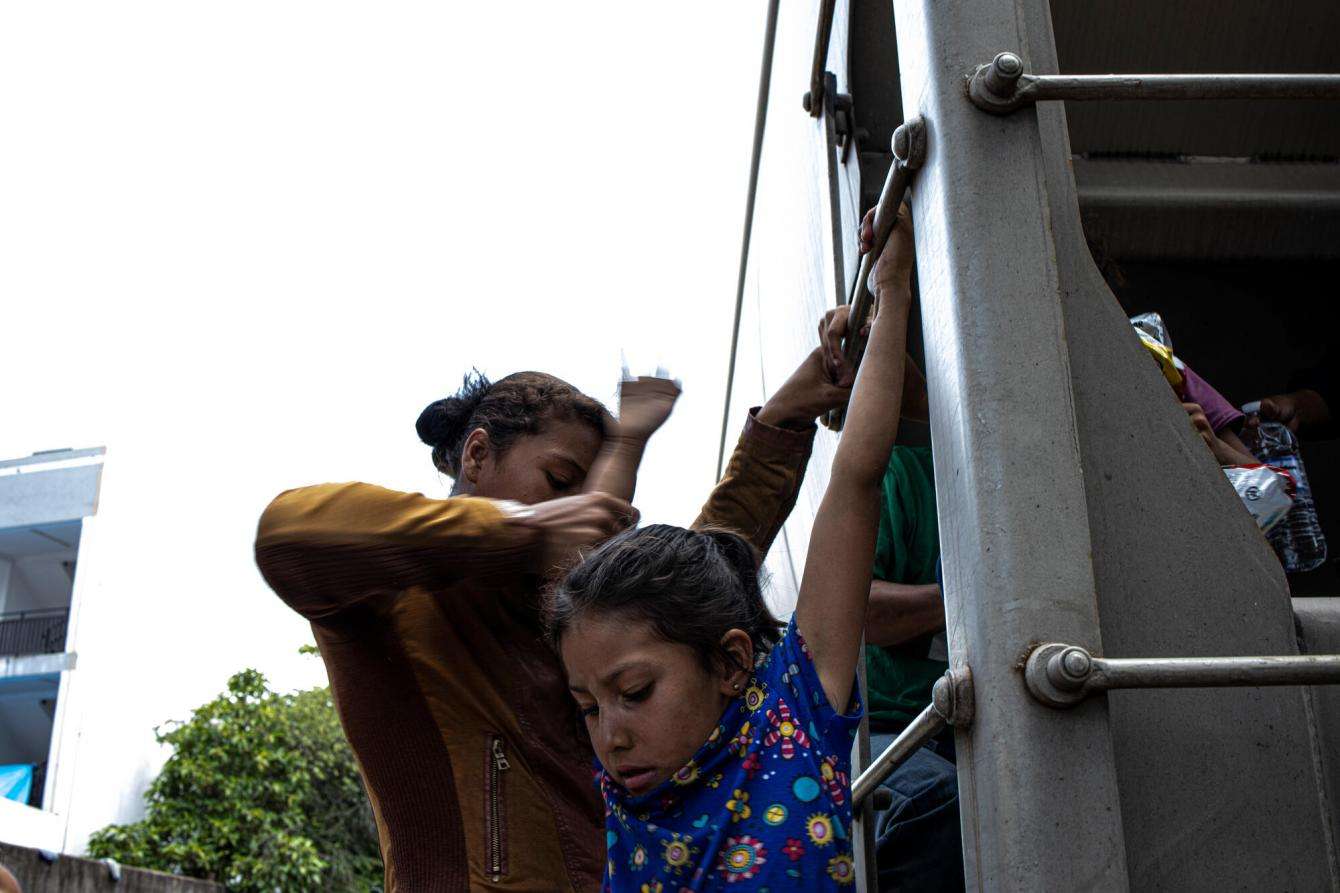
Harsh migration policies by the United States, Mexico, Honduras, and Guatemala leave people on the move more exposed to the double threats posed by organized crime and COVID-19. MSF medical teams are treating people affected by repeated raids and arbitrary detentions on the southern border of Mexico, including in Coatzacoalcos, a railway hub that is widely used by people seeking safety. We also spoke out on behalf of asylum seekers who were forced back to Mexico by the US under the Title 42 order, which has been misused to authorize mass expulsions ostensibly for public health reasons related to the COVID-19 pandemic.
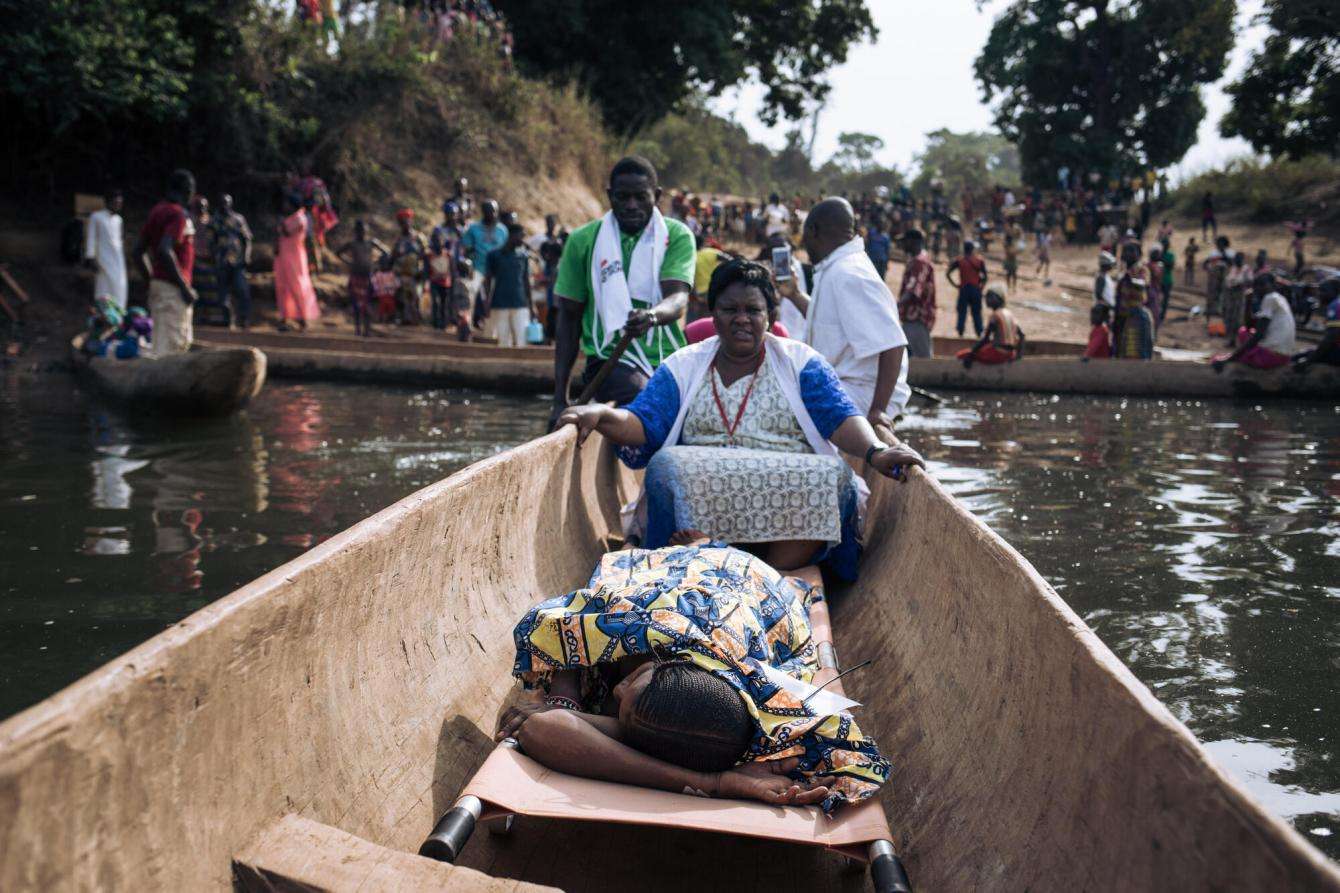
Midwife Odette accompanies Amatou (lying down in the pirogue), who is pregnant and about to give birth, across the river to be transferred to an MSF-supported hospital in Bangassou. Renewed conflict has displaced hundreds of thousands of people in Central African Republic and has continued to threaten the urgent and necessary health care services that organizations like MSF provide.
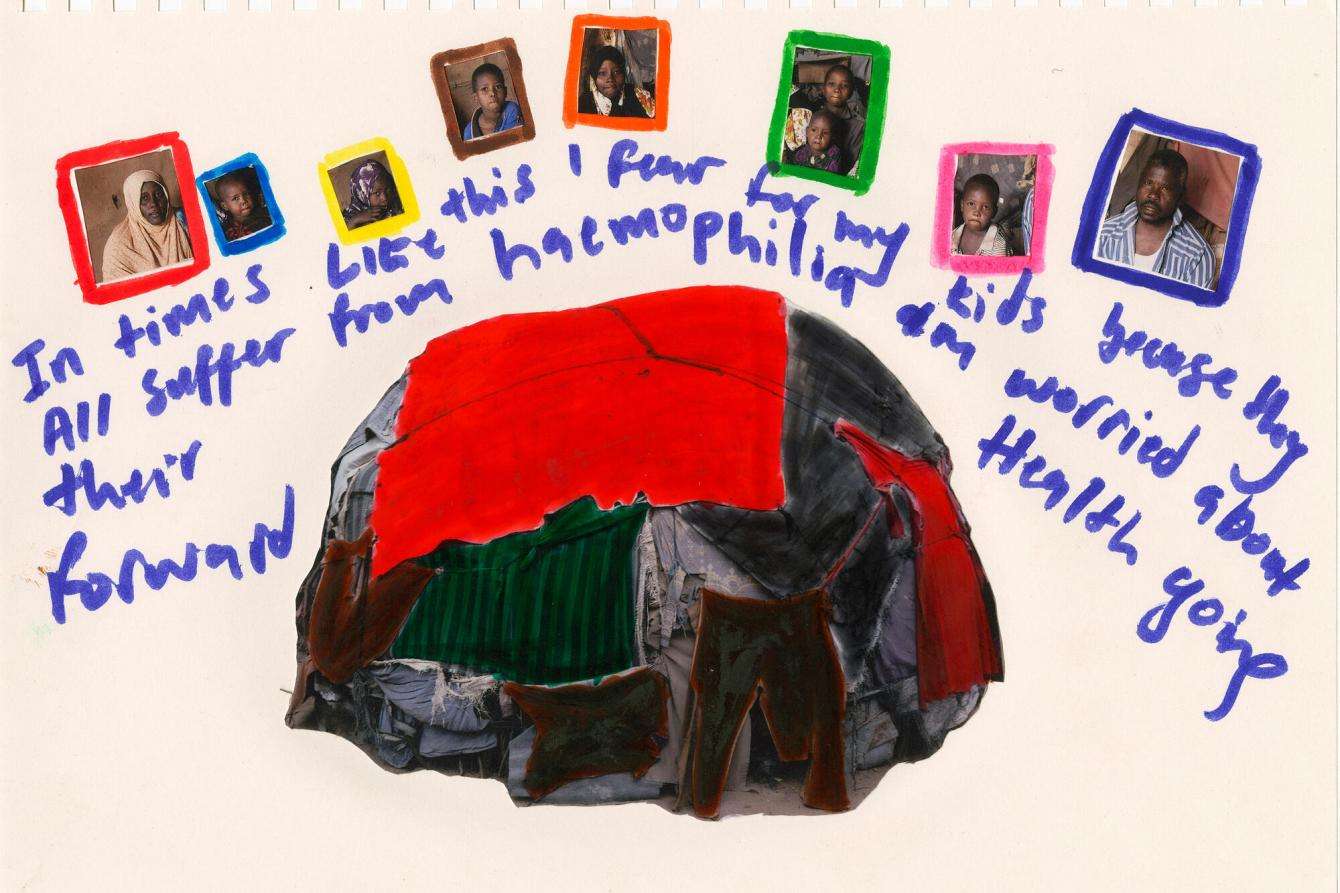
This collage was made by Fathima, who fled Somalia with her husband in 1991. She lives in Dagahaley camp, one of the Dadaab refugee camps that was established 30 years ago to accommodate Somalis fleeing civil war. Fathima and her husband were married there and have twelve children. Four of the boys suffer from hemophilia and receive care from MSF teams in the camp. Kenya’s government recently announced plans to close the camps, which currently shelter almost half a million people.

An MSF midwife cares for a pregnant woman in the inpatient department at MSF's Khost maternity hospital. During the change of government in Afghanistan this summer, conflict, fear, and damaged infrastructure made it difficult for people to access medical care. To ensure that more people had access to safe deliveries, MSF expanded the admission criteria at its maternity hospital to assist all pregnant women, not just those at high risk for complications.
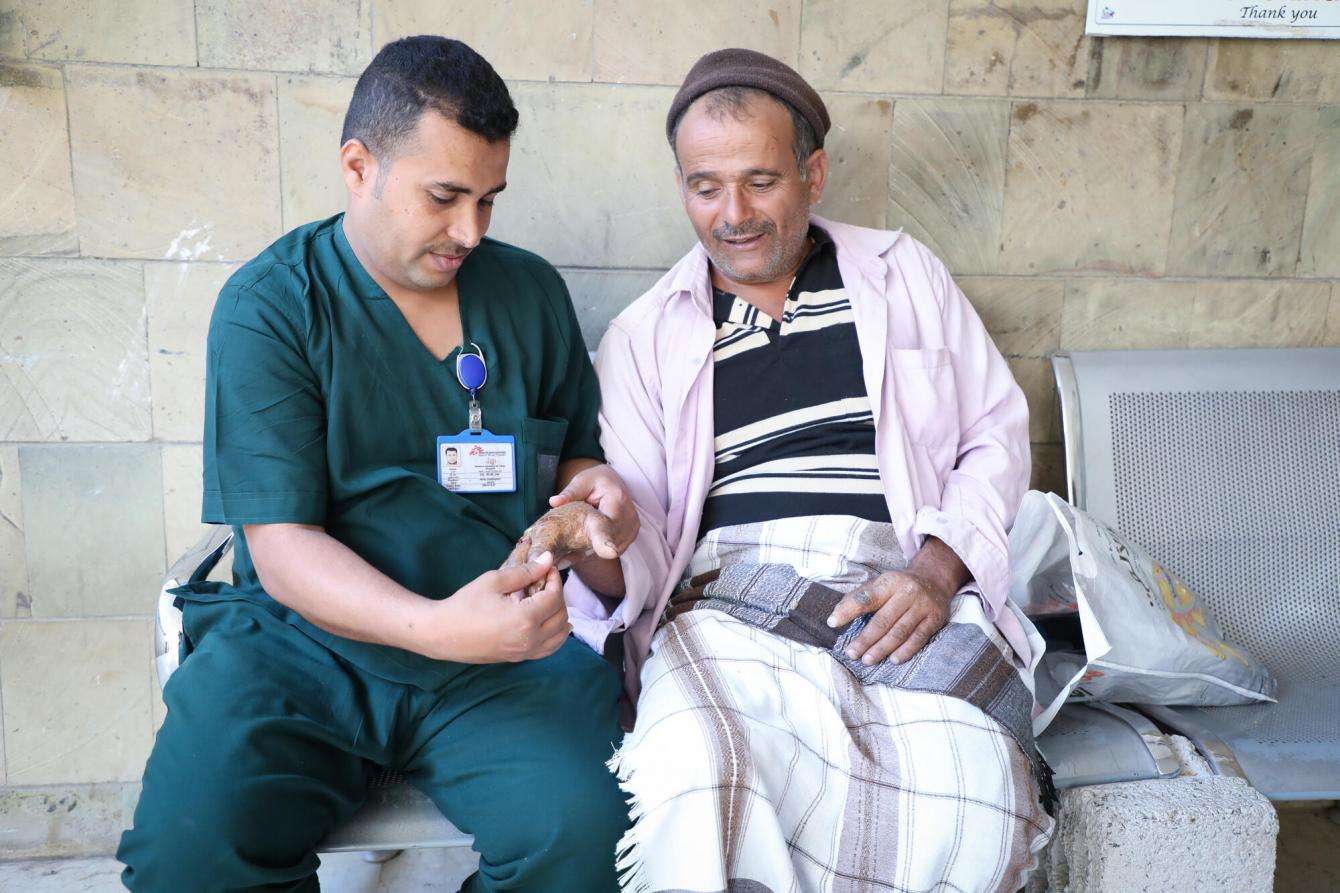
Dr. Ahmed (left), a physiotherapist for MSF, treats Abdul Jalil (right) after a gunpowder explosion injured his hand. Health care needs in Yemen remain high after seven years of brutal war. Since 2016, MSF has been providing urgently needed health care services at the General Rural Hospital of Dhi As Sufal in Ibb governorate, near one of the country's front lines.
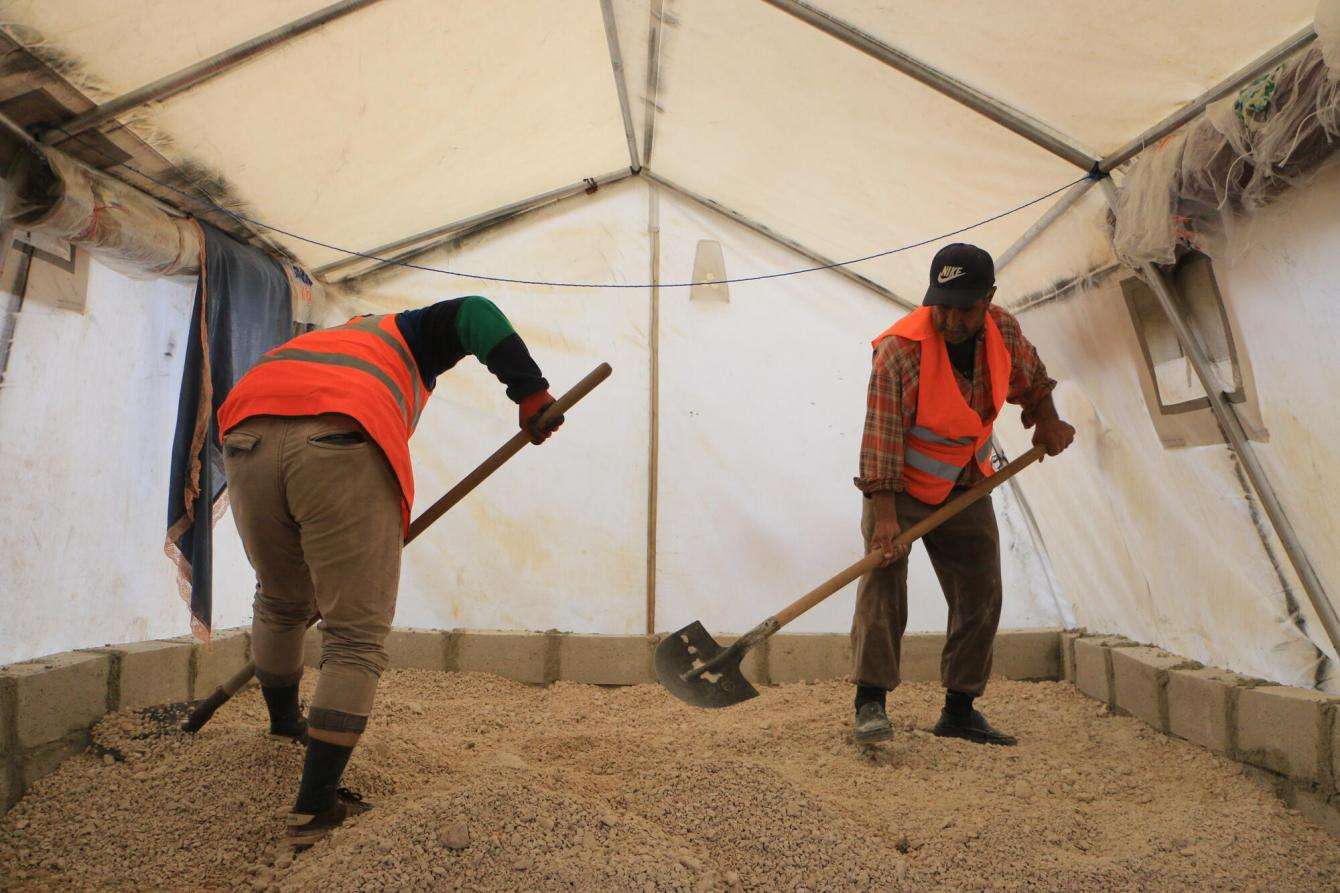
An MSF logistics team works to raise the floors of tents in a displaced camp in northwest Syria. During the winter, already dire living conditions become even more unbearable. MSF teams conduct a range of activities to mitigate the season’s impact including distributing kits of warm clothes and blankets to approximately 3,000 families in 18 camps and installing tent flooring, roof isolation, and thermal insulation to prevent flooding and help protect people from freezing temperatures.
Natural and Man-Made Disasters
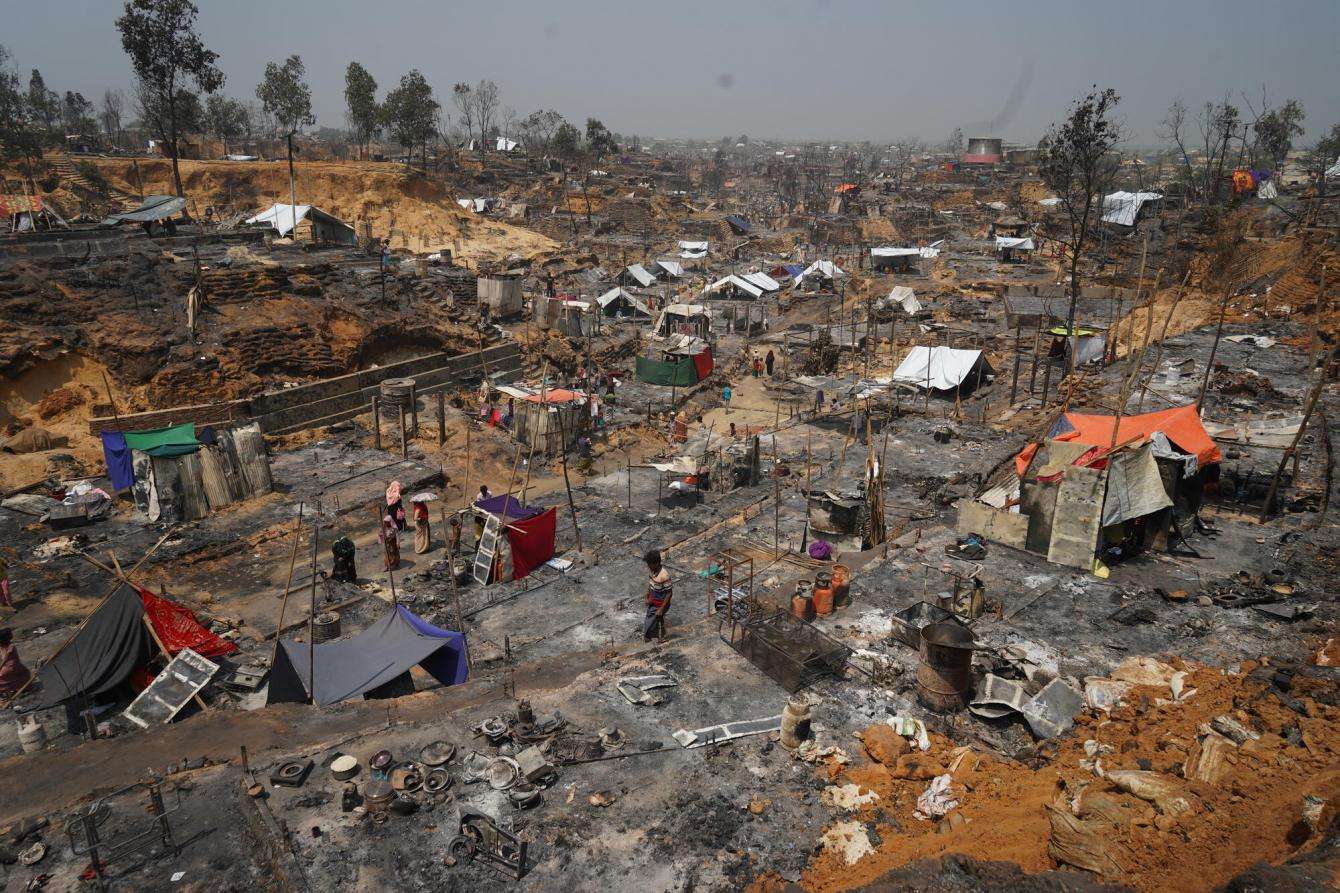
A large fire engulfed thousands of shelters in several of the camps in Cox's Bazar, Bangladesh, where around 900,000 Rohingya refugees live after fleeing violence and persecution in Myanmar. MSF’s Balukhali clinic was completely destroyed. Fortunately, all patients and staff were evacuated before the fire intensified. MSF treated 11 people who were wounded as a result of the fire. The shelters are built with flimsy materials that can easily catch on fire, which can spread rapidly in the densely populated camps.
Living conditions in the camps are deteriorating with reduced access to health care, increased violence, and insufficient basic living conditions. The Rohingya have been denied the ability to return to their homes in Myanmar safely and with dignity. The restrictions on their freedom of movement and with no access to livelihoods in Bangladesh, including the ability to work, mean that they are entirely dependent on humanitarian assistance.
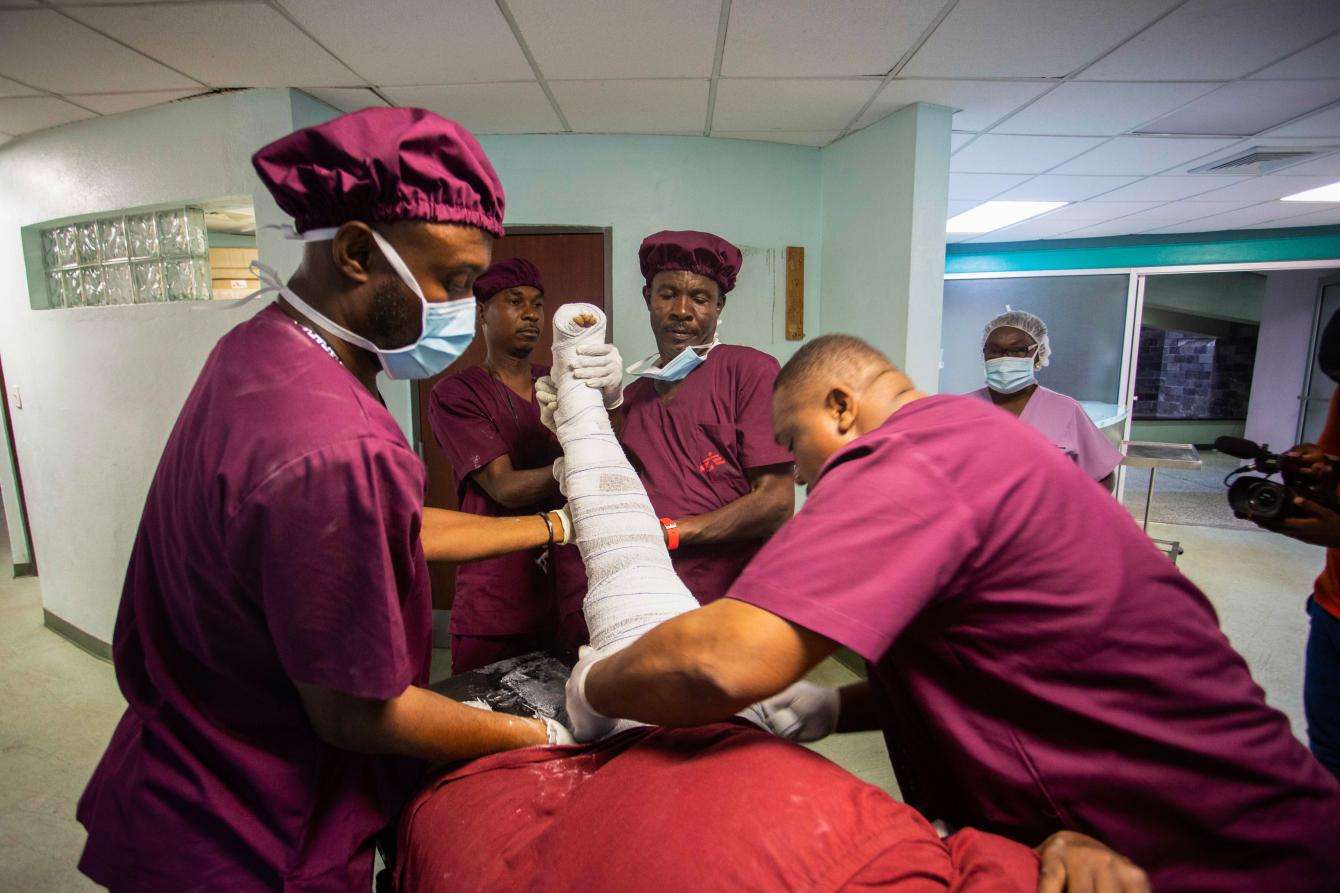
A medical team from Turgeau emergency center in Port-au-Prince is attending a patient who was wounded during the 7.2 magnitude earthquake that struck southern Haiti this summer. Many health facilities were damaged or destroyed. When the quake struck, medics, logisticians, administrators, and more—many of whom were responding in their own communities—were ready to take action, providing surgical, post-operative, and psychosocial care. MSF teams have been working continuously in Haiti since 1991.

Two men use a canoe to navigate through floodwaters on the outskirts of Bentiu's internally displaced persons camp. Across Unity state in South Sudan, people’s homes and livelihoods (including crops and cattle)—as well as health facilities, schools, and markets—were completely submerged by water as historic floods struck a wide swathe of the country for the third year in a row. In Bentiu town, an estimated 32,000 people fled rising floodwaters in the surrounding villages for four makeshift camps.

Dieudonné Bizimungu stands with his children next to their destroyed house in Goma, Democratic Republic of Congo following the eruption of Mount Nyiragongo volcano on May 22. In addition to MSF's existing health care projects in the area, our teams responded to the eruption by distributing over 640,000 gallons of water, building latrines, and increasing the number of chlorine distribution points to prevent the spread of waterborne diseases.
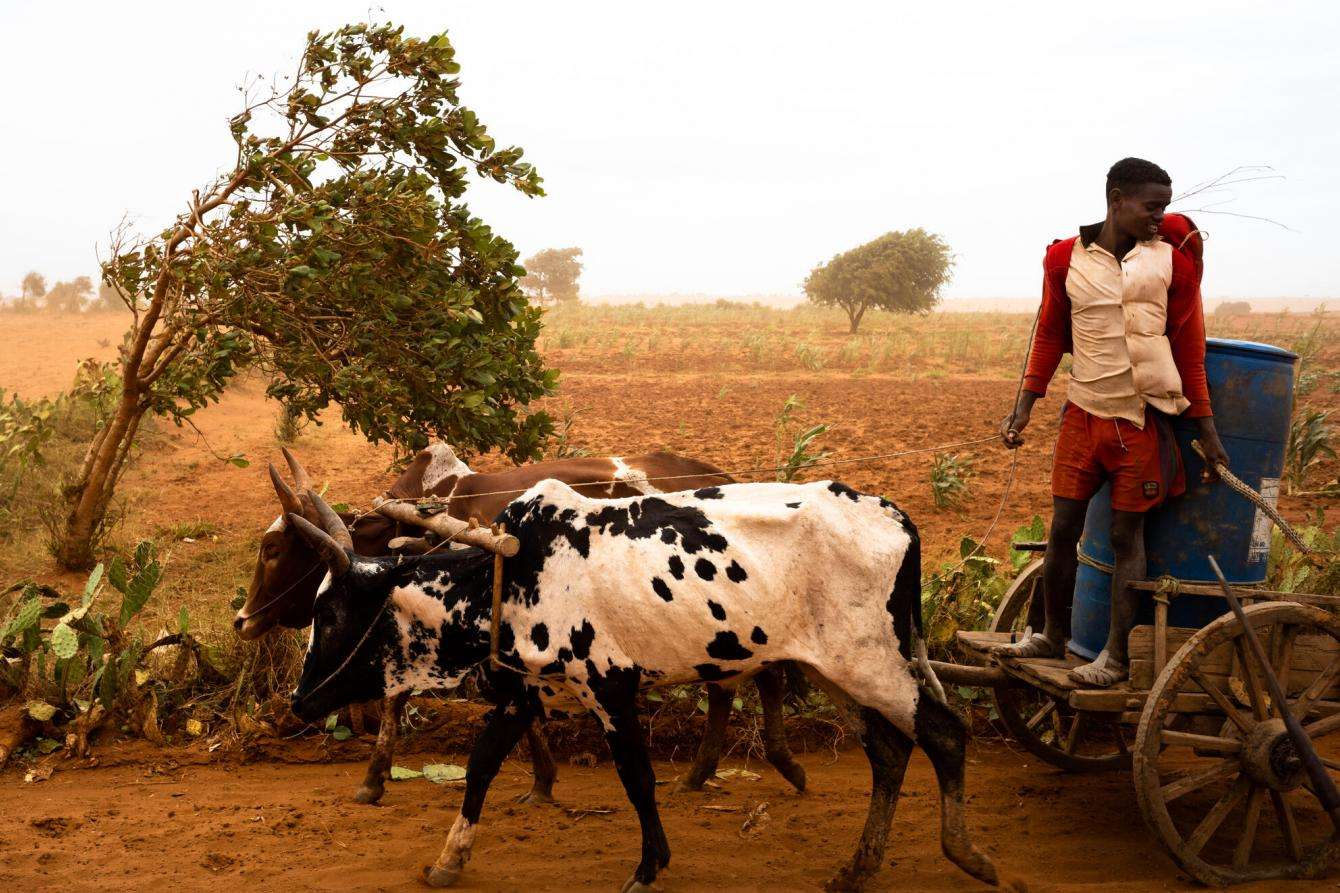
The lean season, which usually ends in April, is becoming more critical each year in the desert regions of southern Madagascar. From December onwards, violent sand winds also cover part of the arable land and food used during the lean season, such as cactus fruit. MSF has been running mobile clinics in the area, focusing on screening nearly 5,000 people and treating over 1,000 for severe and moderate acute malnutrition.
Fighting Infectious Diseases
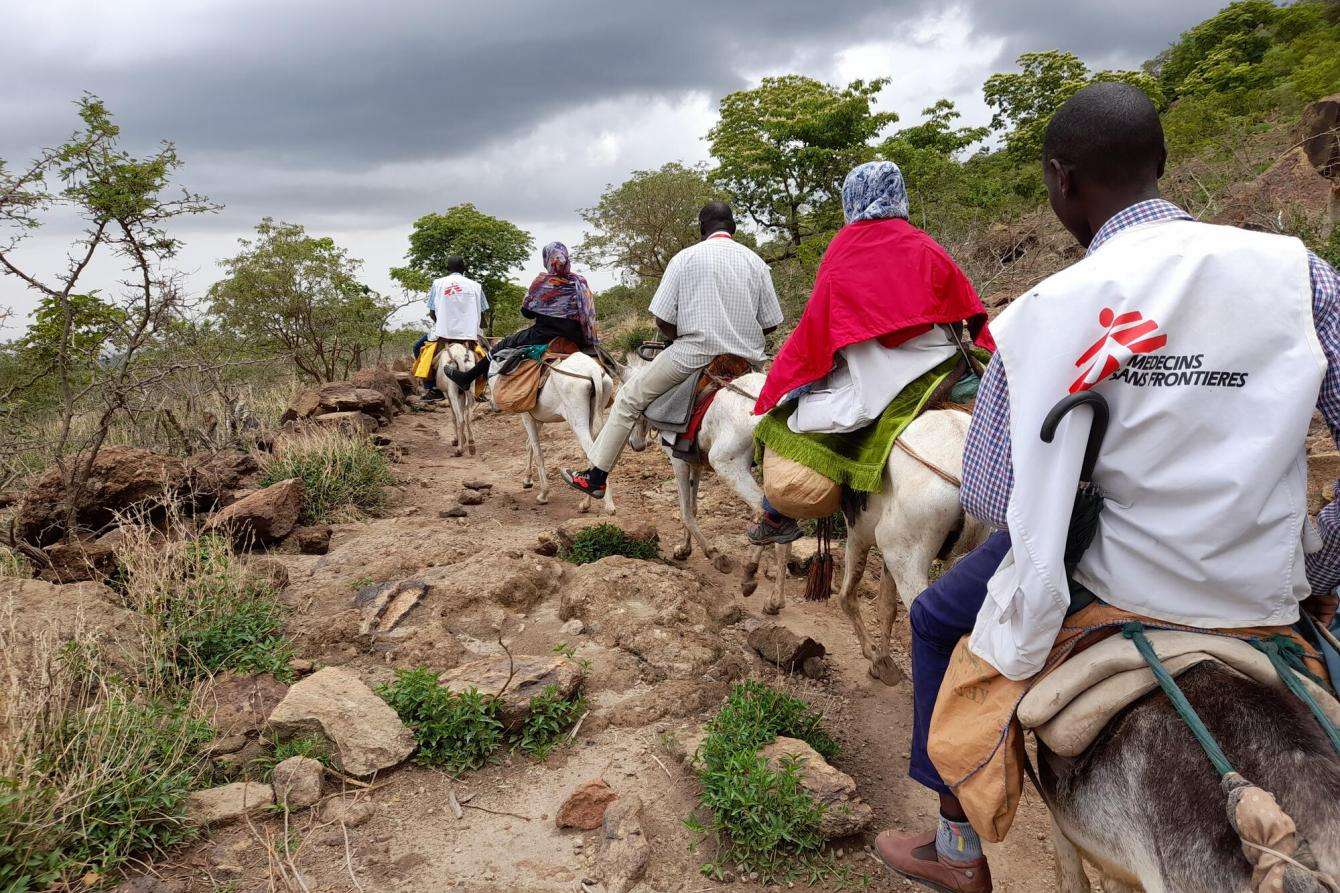
An MSF team comprised of medical assistants, a nurse, a nursing activity manager, and a project coordinator travel from Koya to Dilli, in the Jebel Marra region of South Darfur, Sudan. Together with the local community, the Sudanese Ministry of Health, and UN agencies, MSF launched an urgent measles vaccination and treatment campaign in Jebel Marra this summer. By August, MSF’s clinics had provided care to 849 children with suspected measles, including 824 under the age of five.

Ateny Mayen Akoi holds her eight-month-old daughter Agel after she received Seasonal Malaria Chemoprevention (SMC) drugs to prevent malaria at a distribution site set up in the village of Kuom, South Sudan. This year's SMC project targeted approximately 25,109 children below the age of five in and around Aweil town of Northern Bahr el Ghazal state.
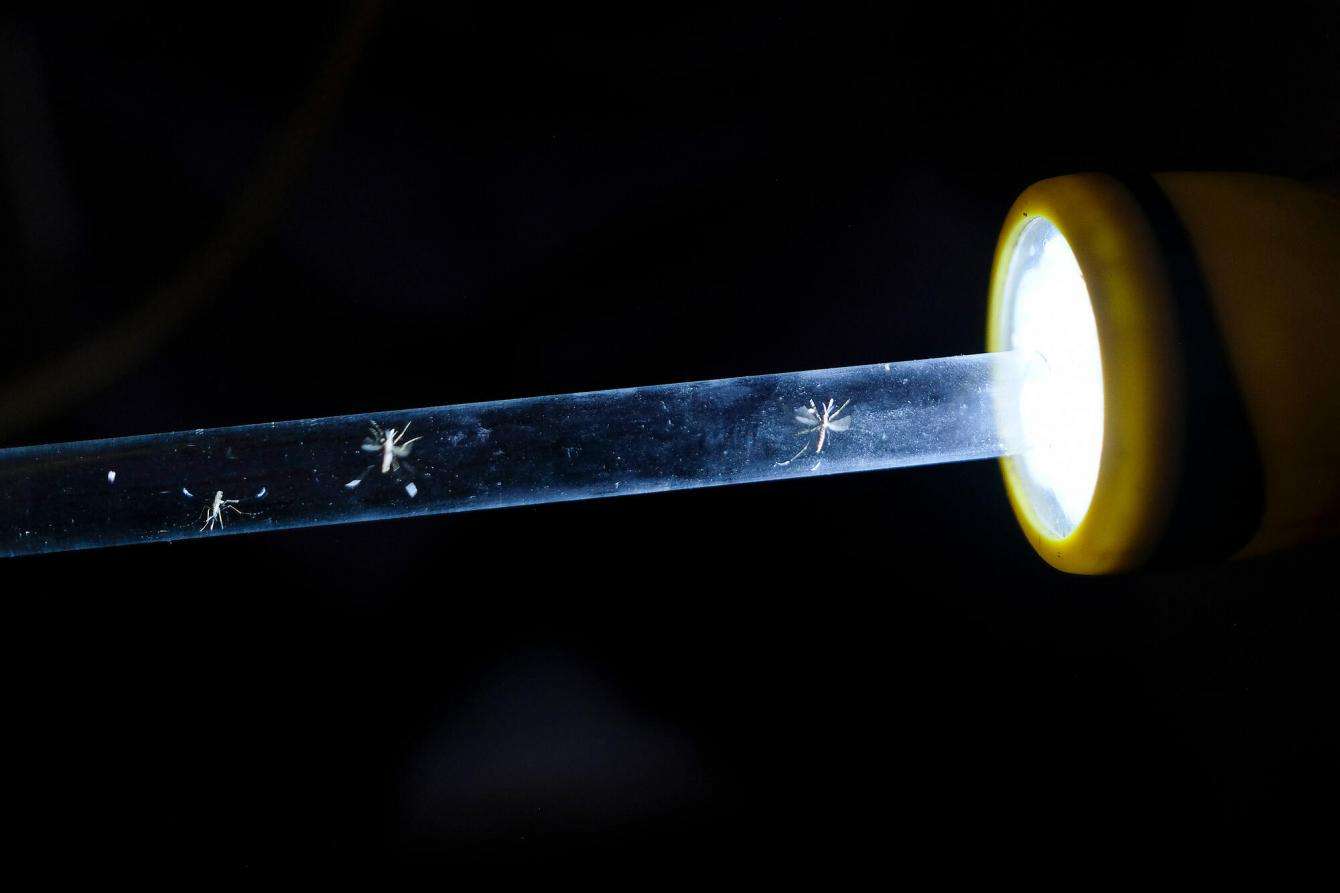
In Sucre state, Venezuela, mosquitoes that were caught in a trap are examined by flashlight. MSF epidemiologists capture and study the mosquitoes, which transmit malaria, to design strategies to control them and prevent malaria.

Brang Seng was diagnosed with HIV in April 2021. He receives care at MSF’s Myitkyina clinic in Kachin state. When the Myanmar military seized power this year widespread insecurity and threats against health care workers severely impacted the public health care system, including the National AIDS Program (NAP), which provides medication, consultations, and counseling to more than 150,000 people living with HIV. In response, MSF scaled up its own services, providing over 7,200 consultations to NAP patients this year.
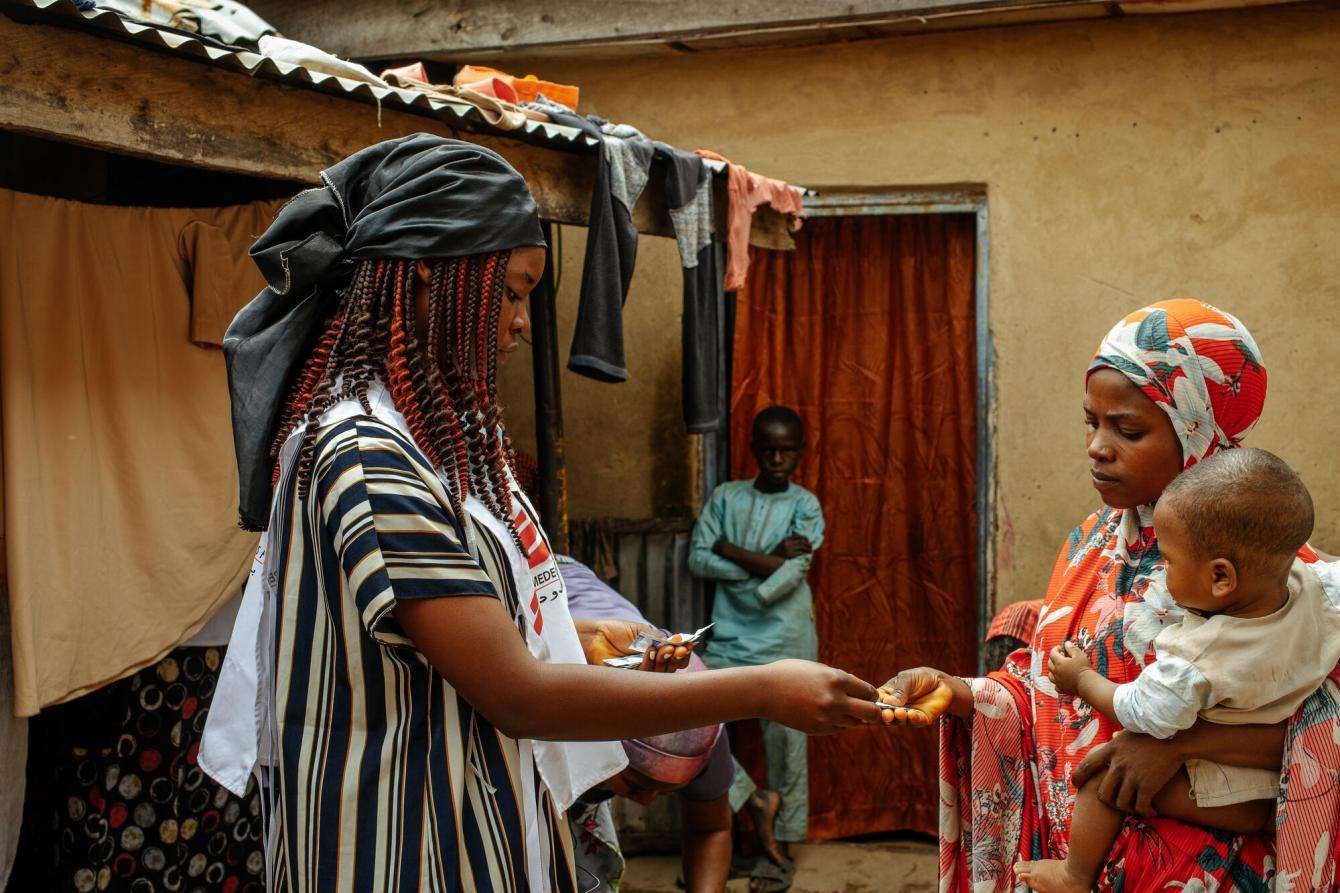
An MSF health promoter gives tablets to treat drinking water to a mother in Magama village in Bauchi state. This year, Nigeria has been fighting the country’s worst cholera outbreak in a decade. MSF, along with the Nigerian Ministry of Health, has opened six cholera treatment centers across the region and treated more than 20,000 patients so far.
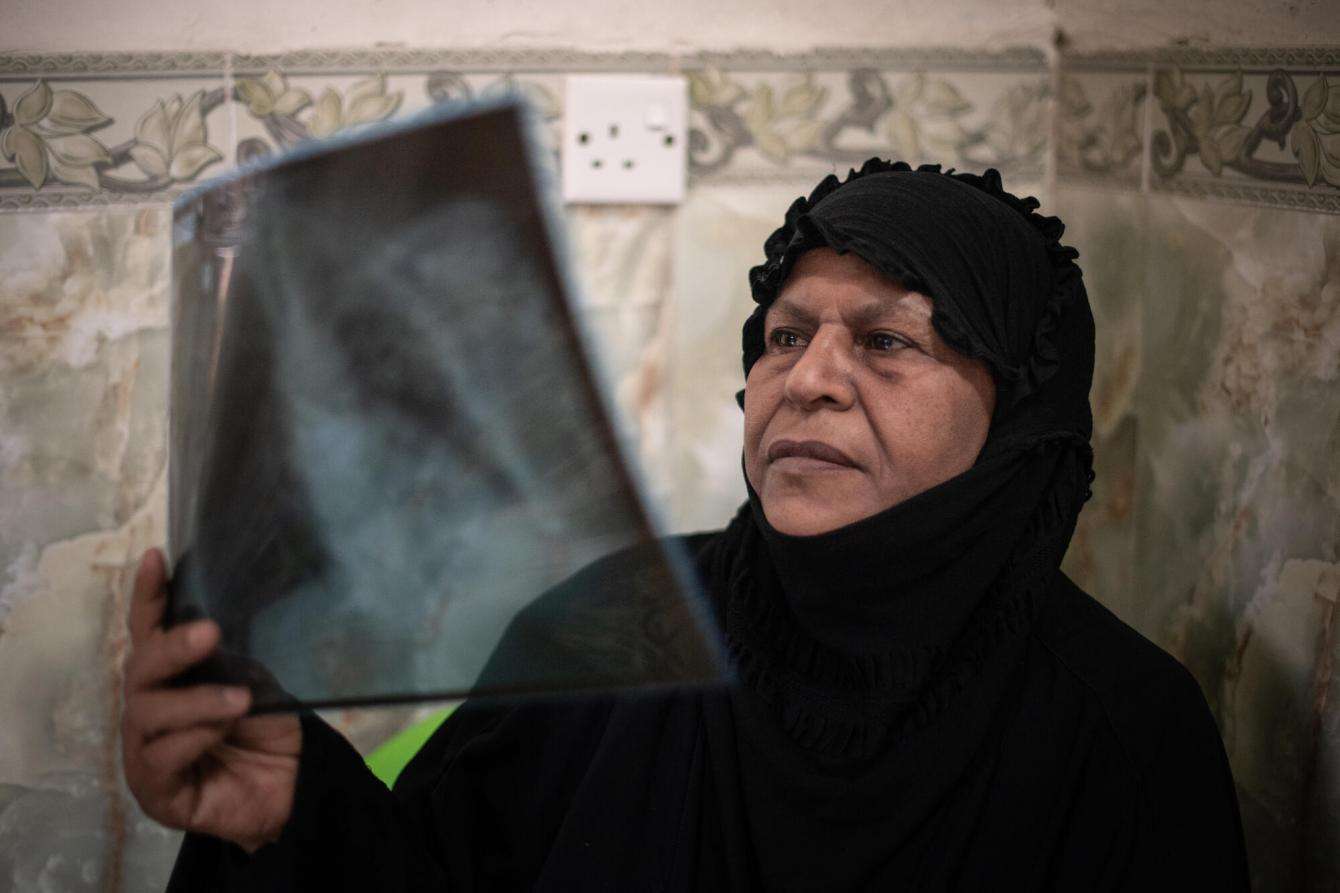
Hameeda looks at an X-ray of her lungs. She is Iraq’s first patient to be cured with the new oral treatment for multidrug-resistant tuberculosis. Before starting this treatment, she was having daily painful injections that had the potential of causing serious side effects like hearing loss and kidney damage.
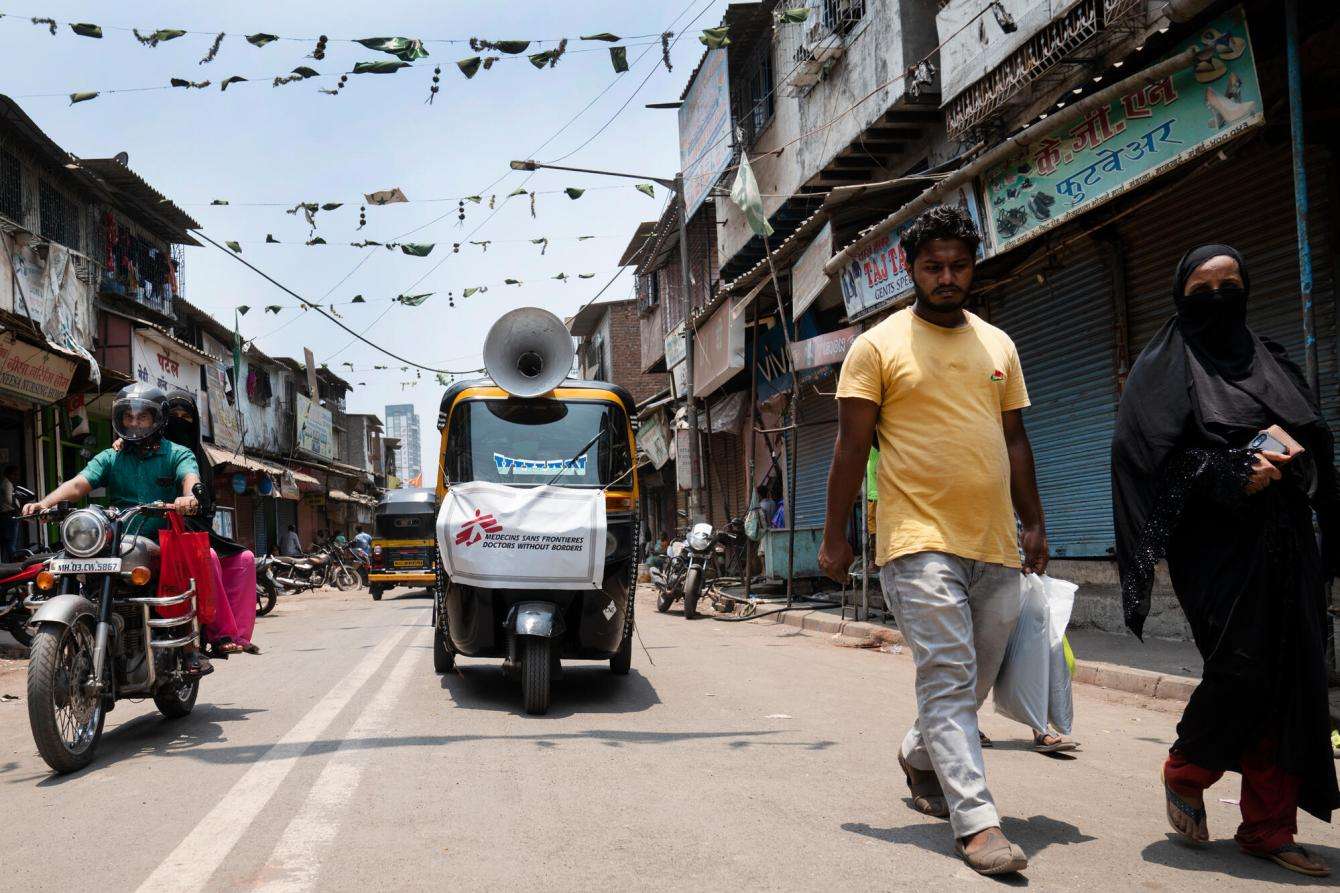
An auto rikshaw (tuktuk) visits the streets of Mumbai’s M-East Ward in India to spread awareness about COVID-19 prevention. The country was faced with a massive oxygen shortage this year and a deeply overburdened health care system. MSF responded with medical support including ensuring continuity of care to patients with TB, HIV, and hepatitis C throughout the pandemic.
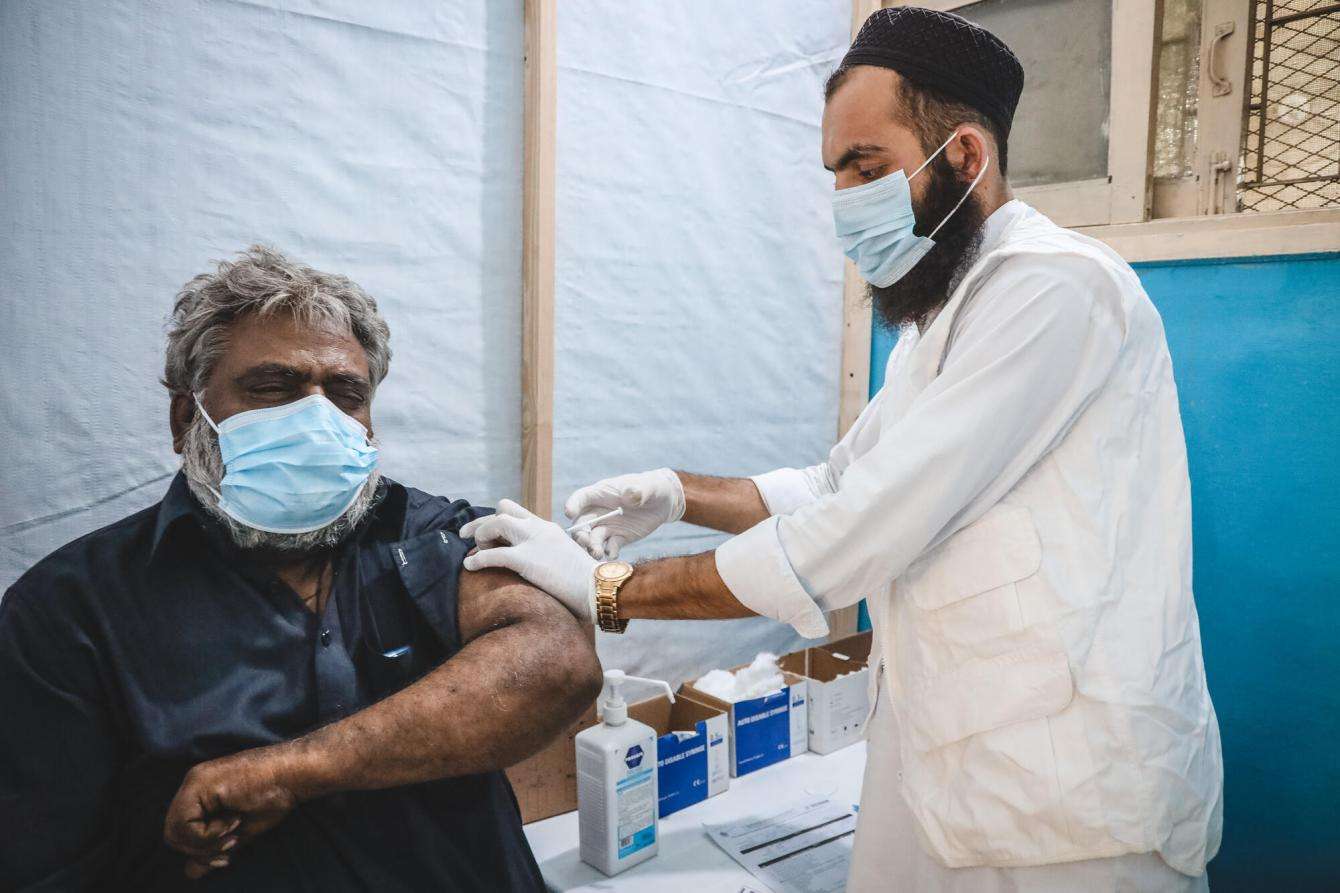
In Pakistan, MSF started supporting the Sindh health authorities with their COVID-19 vaccination activities across Karachi in September 2021. MSF is running activities in the rural health center of Sher Shah, and also has a mobile vaccination clinic in Machar Colony.
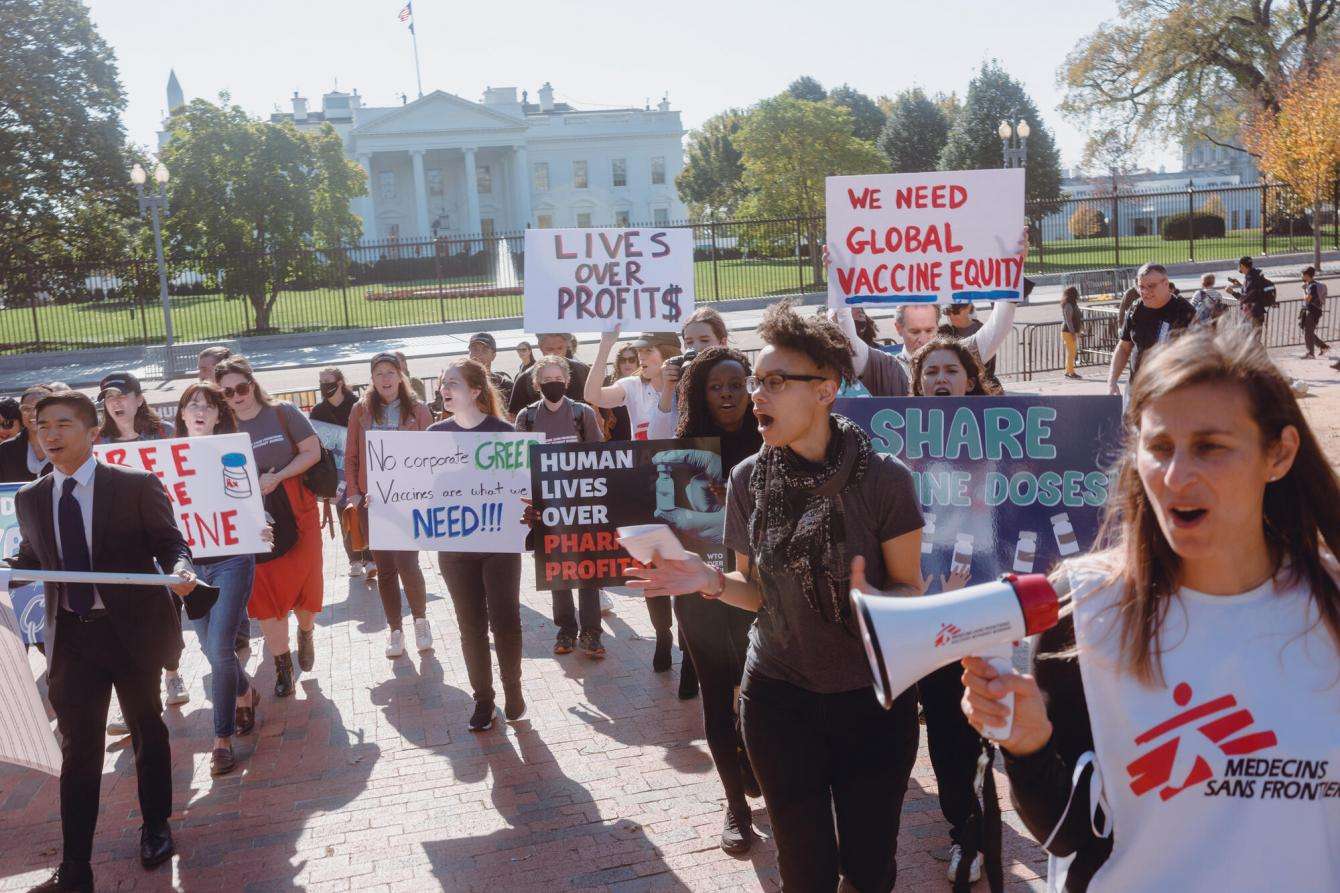
On November 10, MSF held a demonstration in front of the White House in Washington, DC, calling on the Biden administration—which gave pharmaceutical corporations billions of US taxpayer dollars to develop COVID-19 vaccines—to do more to ensure global vaccine equity.
The group carried a banner bearing the names of nearly 130,000 people who had signed a petition, and they staged a scene where mock supplies of the vaccines were chained and locked up and people posed as Pfizer, Moderna, and the World Trade Organization, guarding the doses. Later, participants “freed the vaccines” by removing the chains.

